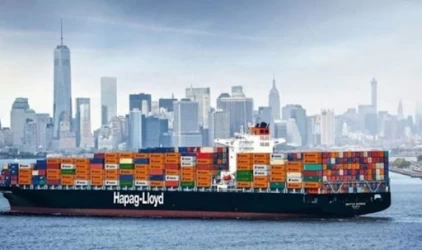Guide to Trade with Sudan, Sea Shipping
Sudan, located in Northeast Africa, is the third-largest country on the continent and is rich in natural resources and agricultural potential. Its strategic geographical position, with access to the Red Sea, makes it a vital hub for maritime transportation and international trade. This article aims to provide a comprehensive guide on trading with Sudan, focusing on maritime transportation, key regulations, challenges, and opportunities.
Economic Overview of Sudan
Sudan's economy has traditionally relied on agriculture, livestock, and natural resources, particularly oil and gold. In recent years, the government has been working on diversifying its economy and improving the business environment to attract foreign investment. Major exports include oil, gold, agricultural products, and livestock, while the main imports consist of machinery, foodstuffs, and consumer goods.
Advantages of Trading with Sudan
- Natural Resources: Sudan is endowed with significant natural resources, including oil, gold, and fertile agricultural land, providing ample opportunities for trade.
- Growing Market: With a population exceeding 44 million, there is increasing domestic demand for goods and services, presenting opportunities for foreign businesses.
- Strategic Location: Sudan's access to the Red Sea through Port Sudan enables easy maritime access to Middle Eastern, Asian, and European markets.
- Investment in Infrastructure: The Sudanese government is investing in improving infrastructure, including transport and energy, which creates favorable conditions for trade.
Maritime Transportation in Sudan
1. Port Sudan: The Main Maritime Gateway
Port Sudan is the primary seaport of Sudan, located on the Red Sea coast. It serves as the main entry and exit point for goods imported and exported from Sudan. The port is equipped with various terminals, including container terminals and bulk cargo terminals, facilitating the efficient handling of different types of cargo.
2. Benefits of Maritime Transportation
- Cost-Effectiveness: Maritime transport is generally more cost-effective than air freight, especially for large volumes of goods. This cost advantage is appealing for international companies looking to minimize logistics expenses.
- High Capacity: Cargo ships can carry large quantities of goods, making maritime transport an efficient option for bulk shipments.
- Access to Global Markets: Through Port Sudan, businesses can access global markets, enhancing trade opportunities.
3. Infrastructure Developments
The Sudanese government is focusing on upgrading the infrastructure of Port Sudan and other transport networks. Investments are being made to modernize port facilities, increase cargo handling capacity, and improve connectivity with inland transport networks. These developments are crucial for enhancing the efficiency of maritime transportation.
Customs Regulations in Sudan
Understanding Sudan's customs regulations is essential for successful trade. Key points include:
- Necessary Documentation: Importers must provide essential documents, including commercial invoices, bills of lading, certificates of origin, and import permits, for customs clearance.
- Tariffs and Duties: Sudan applies various tariffs based on the type of goods imported. Import duties and taxes can significantly affect the cost of goods.
- Specific Regulations: Certain products, such as food items, pharmaceuticals, and cosmetics, require special permits or quality certifications before importation.
Challenges in Trading with Sudan
- Economic Instability: Sudan has faced economic challenges, including inflation and currency fluctuations, which can affect trade costs and business operations.
- Political Environment: Political instability and changes in government policies can impact the business climate and regulatory framework.
- Underdeveloped Infrastructure: While improvements are underway, some regions still lack adequate infrastructure, making logistics and transportation challenging.
Opportunities for Investment and Trade in Sudan
- Agricultural Sector: With vast arable land and favorable climate conditions, there are significant opportunities for investment in agriculture, food production, and agribusiness.
- Mining Sector: Sudan is rich in minerals, particularly gold, providing ample opportunities for foreign investment in mining and resource extraction.
- Infrastructure Development: The government is keen to attract foreign investment in developing infrastructure, including transportation networks and energy production, creating numerous investment opportunities.
Conclusion
Sudan presents a unique opportunity for international trade and investment, driven by its rich natural resources, strategic location, and potential for economic growth. While challenges such as economic instability and regulatory complexities exist, the ongoing efforts to improve infrastructure and create a more conducive business environment make it an attractive destination for foreign companies. Understanding the nuances of maritime transportation and customs regulations is vital for successfully navigating the Sudanese market.
If you have any specific questions or need further assistance, feel free to ask!











